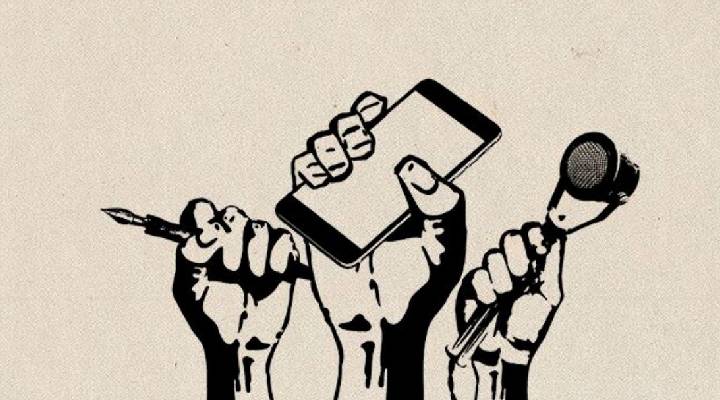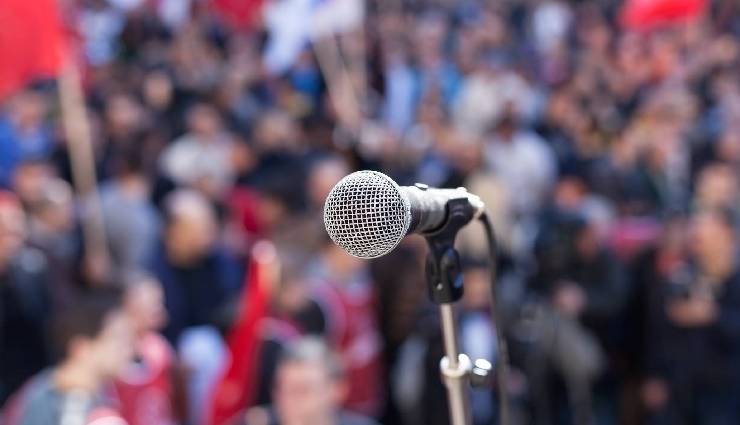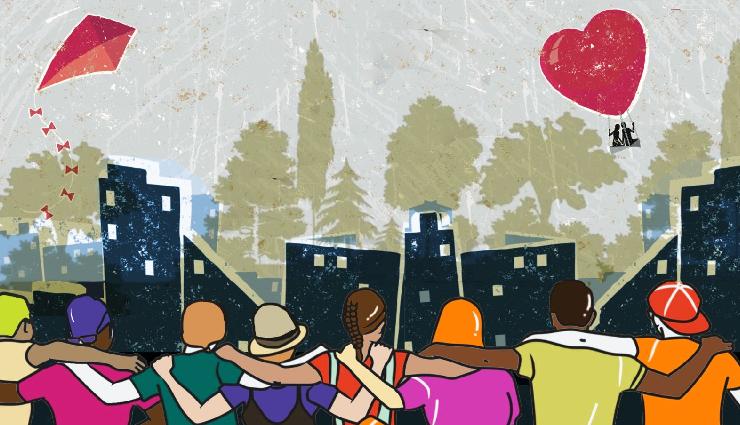In democratic and democratic societies, freedom of speech is an accepted principle that is supported to some extent. Of course, the main question is to what extent freedom of speech is taken and kept. While in some societies, this freedom is supported at any cost; others prevent the free dissemination of content for any reason. To clarify the matter, we must first get acquainted with freedom of speech and its limitations.
What is meant by freedom of speech?
There are various definitions of freedom of expression. In general, this freedom means people’s legal right to express their opinions and freely search for information and views without fear of censorship or legal action. According to important international legal documents, freedom of expression is the right to seek, receive and disseminate information and ideas of any kind and by any means.
In some societies, such as England, people are believed to be free to express their opinions, even if they are offensive. However, the mean expression has consequences that should be considered.
Freedom of speech is also mentioned in the Iranian constitution. In Article 24 of the Constitution, we read:
Publications and the press are free to express their content, unless they disturb the principles of Islam or public rights. Its details are determined by law.
Article 23 of this law considers freedom of opinion as one of the essentials of freedom of expression:
The inquisition of opinions is prohibited and no one can be assaulted and reprimanded for having an opinion.
Accordingly, according to legal experts, people’s opinions are part of their privacy, and no one has the right to inspect them until they have expressed it.
Is freedom of speech part of human rights?
The Universal Declaration of Human Rights was approved in 1948 by the representatives of 50 countries of the United Nations. They did this in response to World War II to prevent the recurrence of such large-scale conflicts worldwide. In this declaration, 30 human rights were determined. These rights have been established to belong to all the world’s people, and no one’s freedom is lost.
Articles 18 and 19 of this declaration mainly relate to freedom of expression. In Article 18 of this declaration, we read:
Everyone is free to believe in whatever they want and follow their beliefs (including religious beliefs).
Article 19 of this declaration also stipulates:
Everyone has the right to freely express their opinions in any way they want.
These legal articles became the basis of various global human rights laws. For example, Article 10 of the British Human Rights Act is inspired by the legal papers of the Declaration of Human Rights. This legal article grants people freedom of speech without harassment and confrontation. However, it sets conditions that limit this freedom. The Universal Declaration of Human Rights also inspires freedom of speech in Iran. What we read in-laws, such as the Constitution and the Press Law, originated from this Universal Declaration.
Elements of the right to freedom of expression

Freedom of expression is a general concept that consists of other minor freedoms. According to communication law experts, by examining these elements or freedoms, it can be said whether there is freedom of expression in a society or not.
1. Freedom to form opinions and thoughts
This freedom is the prelude to the right of people to express themselves. People should be able to think freely to express their thoughts and opinions in the following steps. Article 23 of the Constitution states that no one can be attacked at this stage.
2. Freedom to express opinions and thoughts
What is the use of thinking until we can express the result to someone? People in a society have freedom of opinion and expression if they can share the results of their thoughts and theories with others. These thoughts and ideas will not be practical until they are expressed and criticized constructively.
3. Freedom to convey thoughts to others
People don’t always promote their ideas. You may not be the person who came up with the theory, but you are interested in spreading it. The freedom to communicate your thoughts to others supports this right.
4. Freedom to determine the terms of expression
The people of society should be able to freely choose the content they want to express. The freedom to determine the type of expression means you can choose whether your words or content are political, literary, artistic, commercial, or religious. The result of this choice is that in some societies, for example, political expressions are supported more than other expressions. Sometimes commercial expressions have stricter rules.
5. Freedom to determine the audience
For example, suppose you publish something on your page on social networks. In that case, it will be covered by the privacy rule, and the principle is that the audience should not post it anywhere without your permission. Therefore, everyone is free to choose their audience, a right that is usually more recognized in social networks.
6. Freedom to choose means of expression
A person who expresses something has the right to select his means of expression. Means of expression are media:
- printed
- audio;
- multimedia;
- Multimedia.
If one of them is chosen by the expresser, no one has the right to publish it elsewhere without permission.
7. Freedom of expression
To identify free societies, we must examine this type of freedom. In communities with severe censorship, this kind of freedom is violated.
8. Freedom to seek information
To have constructive and free expression, we must access reliable sources of information. In various countries, such as Iran, a law called the law of publication and free access to information had been approved. This law has attempted to legalize access to information and related restrictions.
What are the limitations of freedom of speech?
Although freedom of opinion and expression are accepted legal principles in most countries, they have certain limitations in each country. Generally, every rule, both lawful and non-legal, has exceptions, and freedom of speech is the same. For example, in the second paragraph of Article 19 of the International Covenant on Civil and Political Rights, restrictions have been set for this freedom, which of course, are only prescribed by law and in case of necessity. These limits are to support the following:
- the rights or dignity and reputation of others in compliance with those above;
- national security or public order;
- community health;
- Public morality.
Article 20 of this covenant also prohibits propaganda for war or incitement to national, racial, or religious hatred that incites discrimination, conflict, or using force.
Freedom of speech in the Islamic Republic of Iran and the Constitution, the Press Law, the Islamic Penal Code, and the like have limitations that include:
- National Security;
- violation of the privacy of individuals;
- Insulting and defaming others;
- violation of intellectual property rights ;
- misleading advertising;
- Disruption in the process of judicial proceedings.
The restrictions imposed on individuals of a small society like a company or a larger organization like a country should be clear and appropriate to the conditions of that society. Relevant appeals processes must back up these restrictions to prevent potential abuse.
Why is freedom of speech important?

Freedom of speech is essential for many reasons. The biggest reason for this human right is that democracy has priority over everything else. If we cannot speak freely, our other freedoms will be limited. All humans make mistakes, and we all learn to correct or compensate for our errors in life. We must listen to opposing and contradictory views and arguments to enrich our beliefs and opinions. Critical discussions are an essential part of the human learning experience. Such discussions will not arise without the freedom of people to express their views and opposing opinions. Therefore, disagreements can be constructive. Many history-making ideas have faced a lot of opposition in their time. Many scientists and thinkers like Galileo were not understood in their time, but today we consider them essential and transformative.
Furthermore, if opposing arguments or differing viewpoints are dismissed, it does not necessarily mean they have disappeared. This makes people in the community look for their voices and find those with similar opinions. Inhibitory dealings with opposing views cause higher authorities to suffer a kind of echo. In this case, they only hear statements that align with their own, and critical discourse is not formed. On the other hand, free speech allows ideas to be challenged, changed, and better understood.
Freedom of speech on the Internet and social networks
Often we hear people’s controversial comments and statements through cyberspace. For this reason, it is essential to evaluate the Internet’s and social network’s role in the issue of freedom of expression. Some believe that the Internet has a destructive role in society. Social networks such as Twitter are accused of providing a platform for promoting harmful views and even planning to attack countries.
Digital media play an essential role in freedom of expression and should try to prevent dangerous activities on their platforms. Some social networks have done this. For example, fake news is checked on Facebook and Twitter. Facebook has measures to keep users safe and protect them from false information. The company has implemented algorithms to look for false or exaggerated claims in advertisements.
Internet; A public network
One of the problems faced by cyberspace regulators worldwide is that the Internet is a public network or forum. Virtual space provides a suitable platform for those who cannot make their voice heard by the world. Today, ordinary citizens have found a platform instead of only the media and journalists transmitting the information. This issue is very effective in some instances, for example, when officials abuse their power, and the power of telling the story through cyberspace cannot be underestimated. However, the Internet is also a space for the free sharing information and ideas in more casual situations. For example, Wikipedia is a site where anyone from anywhere worldwide can participate in writing, editing, and verifying data.
last word
Freedom of speech is one of the human rights in modern societies and the world. Understanding the meaning and limitations of this freedom will help us succeed in restoring our human rights. The existence of freedom of speech in society indicates the establishment of democracy and allows people better learn the issues and science of the day. Knowing the positive and negative opinions is a must for learning. Don’t you think so?



